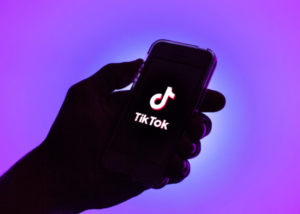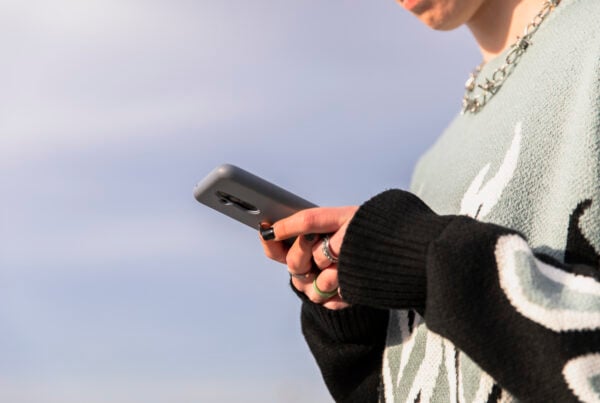We take a weekly look at mobile and tech stories from around the world. Headlines include… TikTok’s Tipping Point: U.S. Takeover Could Redefine Mobile Privacy and Global App Governance, EU Targets Musk’s X with $1B Fine in Landmark Case, Italy’s Telecom Giant TIM Returns to State Control After 28 Years and much more… Alternatively listen On MEF Radio.

TikTok’s Tipping Point: U.S. Takeover Could Redefine Mobile Privacy and Global App Governance
Bloomberg
By Monday, we could know TikTok’s destiny: Donald Trump suggested he could reduce tariffs on Chinese goods if Beijing allows ByteDance, the app’s parent company, to sell it to U.S. entities to avoid a ban. A new U.S.-based TikTok with fresh American investment, which would reduce Chinese ownership below 20% would reshape the mobile ecosystem, from impact on Data Sovereignty and Privacy Standards, on the global app market, in investments and regulation. Oracle and major U.S. investors like Andreessen Horowitz and Blackstone could own about half of the company, with ByteDance retaining a minority stake, according to Bloomberg.
Read more…

EU Targets Musk’s X with $1B Fine in Landmark Case Under Digital Services Act
NYT
The EU plans to fine Elon Musk’s X over $1B for violating the Digital Services Act, with penalties likely including both a fine and product changes, the New York Times reported citing four people with knowledge of the plans.
The case—centered on harmful content moderation—could reshape app governance in Europe, marking the first major enforcement of the DSA and setting a precedent for mobile platforms distributing user-generated content.
Read more…

Musk Buys Twitter—Again: xAI Acquires X in $33B Deal to Build the First AI Super App
Reuters
At the beginning of the week, Elon Musk made headlines again by acquiring Twitter for the second time in three years — this time through his AI company, xAI, in a $33 billion deal. The new entity, XAI Holdings, is valued at over $100 billion. The acquisition strengthens X’s role in the mobile ecosystem, integrating AI features like Musk’s chatbot, Grok, directly into the platform. The move hints at X becoming a super app, blending social networking with AI-powered tools, and signaling a shift in how mobile platforms could evolve in the future.
Read More…

Italy’s Telecom Giant TIM Returns to State Control After 28 Years, Poste Acquires 25% Stake
Reuters
Breaking news on Monday was also about Italy’s former Telecom Italia—now TIM—returning to state control after 28 years, with Poste Italiane acquiring a nearly 25% stake, marking the end of the privatization era that began in 1997.” Initially sold to reduce public debt, Telecom’s low debt and strong cash flow made it a target for international investors, leading to a series of ownership changes.
In 2001, it was taken over by Pirelli and the Benetton family, later passing through Telefonica and Vivendi. Despite efforts to stabilize the company, Telecom struggled with debt and leadership instability, eventually selling its infrastructure to the U.S. fund KKR in 2021. The recent acquisition by Poste, backed by Prime Minister Giorgia Meloni’s government, ensures continued state influence in Italy’s telecom sector, safeguarding it from foreign control.
Read more…

Meta’s Antitrust Showdown: FTC to Challenge WhatsApp and Instagram Acquisitions in Historic Trial
FT
The upcoming Meta antitrust trial, set for April 14, could force the company to undo its acquisitions of WhatsApp and Instagram, according to the Financial Times.
This case marks the most serious antitrust challenge in Meta’s history and the first major test for the Federal Trade Commission under new chair Andrew Ferguson, appointed by Trump, who has pledged a tough stance on Big Tech.
Meta is accused of stifling competition through these acquisitions, and a potential win for the FTC could deter similar strategies by other tech giants.
The outcome could reshape how antitrust laws are applied to tech mergers and acquisitions, especially in the mobile ecosystem.
Read more…

Amazon’s Satellite Ambitions Take Off: 27 LEO Satellites to Launch for Project Kuiper
Telecoms
Amazon is preparing to launch 27 low Earth orbit (LEO) satellites for its delayed Project Kuiper internet service, with the launch set for April 9, 2025.
This follows the successful deployment of two prototype satellites in October 2023. These new satellites feature upgraded systems, including better antennas, processors, solar arrays, and propulsion systems.
The launch will take place on a United Launch Alliance Atlas V rocket in Florida, marking the first step in the planned 3,200-satellite constellation for the project.
Amazon aims to provide global high-speed, low-latency internet, with services expected to begin in late 2025. The company has secured over 80 additional launches for the full constellation. Amazon joins competitors like SpaceX.
Read More…

OpenAI Grabs $40B from SoftBank, Boosting Valuation to $300B in Race for AI Dominance
Reuters
OpenAI has secured a $40 billion funding round led by SoftBank, boosting its valuation to $300 billion, making it one of the most well-funded private start-ups globally.
SoftBank provided 75% of the funding, with other investors like Microsoft and Coatue Management contributing the remainder.
The investment will help OpenAI push AI frontiers and make it more practical for daily use, according to CEO Sam Altman.
The company is also transitioning to a for-profit model, with the transformation slated for completion by year-end.
In response to competition from rivals like China’s DeepSeek and Meta’s Llama, OpenAI plans to release an open-weights AI model that would be cheaper and more accessible, potentially transforming its business approach in the mobile ecosystem.
Read More…

Cyber Attack on Australian Pension Funds Leaves Thousands Vulnerable, $500K Stolen
Reuters
Cyber attackers have stolen significant sums from Australian pension funds, including AustralianSuper, Rest, and others.
AustralianSuper reported that cybercriminals exploited up to 600 stolen passwords, fraudulently withdrawing A$500,000 from four accounts.
Rest’s online portal was impacted, affecting 8,000 members. Other funds, including Australian Retirement Trust and Insignia Financial, also experienced suspicious activity.
The Australian government and pension funds are working closely with cyber security authorities to address the breaches and protect members’ data.
The incident highlights growing concerns over cyber resilience in the financial sector.
Read more…

Runway AI Raises $308M, Boosting Valuation to $3B with Vision for Revolutionizing Video Creation
Reuters
Runway AI has raised $308 million in a funding round that boosts its valuation to over $3 billion.
The investment, led by General Atlantic, with contributions from Nvidia and SoftBank’s Vision Fund 2, signals strong investor interest in AI-driven video software.
Runway plans to use the funding for research into future AI models and expanding its creative team, which currently includes filmmakers, screenwriters, and editors.
The company, known for its AI video generators, launched its Gen-4 model, which enables more consistent video creation with stable characters, objects, and backgrounds.
Runway’s software has been used for high-profile projects, such as Amazon’s House of David, a Madonna concert tour, and an ad for Puma.
Runway CEO Cris Valenzuela emphasized the company’s goal to streamline filmmaking, making it faster and more efficient, similar to the rapid production pace of shows like Saturday Night Live.
Read more…

Nintendo Switch 2 Launch: A $450 Bet on Exclusive Games and Handheld Innovation
Guardian
Nintendo’s Switch 2 launch is shaping up to be a pivotal moment for its gaming ecosystem, with strong sales projections and an expanded lineup of first-party titles like Mario Kart World.
With a June 5 release and a $450 price tag, the new console builds on Nintendo’s strategy of prioritizing exclusive games over cutting-edge hardware.
The addition of higher resolution, more memory, and a larger screen makes it competitive in the growing handheld market, but its biggest strength remains its ecosystem—where franchises like Zelda, Kirby, and Donkey Kong continue to drive hardware adoption.
Investors are betting on success, with Nintendo shares up 12% this year, but long-term momentum will depend on a steady stream of blockbuster titles beyond 2025.
Read more…





